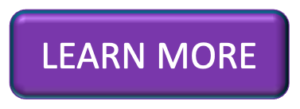Have you ever watched in dismay as a seemingly unstoppable colleague bounces back from a catastrophic professional failure only to become stronger than before?
Or perhaps you’ve wondered why some careers seem to weather storms that sink others?
The difference often comes down to one essential quality: resilience.
In my upcoming masterclass, I reveal how this powerful trait forms the bedrock of career advancement.
Today, I want to explore why resilience matters more than ever and how you can cultivate it to transform your own professional journey.
If you would rather listen than read: 
Why Resilience Has Become the Career Superpower
Picture this: Sarah, a marketing director at a Fortune 500 company, spent six months developing a major campaign that her CEO abruptly canceled during its final review. The team was devastated. Most retreated to their desks, shells of their former confident selves.
But Sarah did something different.
Within 48 hours, she had analyzed what went wrong, salvaged the most promising elements, and developed a leaner, more targeted approach.
Three weeks later, she presented a reimagined campaign that not only got approved but became one of the company’s most successful initiatives of the year.
This isn’t just an inspiring anecdote. It’s a perfect illustration of what Deloitte’s 2023 Workplace Resilience Report uncovered: while 91% of business leaders identified resilience as a critical priority for organizational success, only 15% felt their workforce was adequately prepared to handle ongoing disruption.
This enormous gap between recognition and readiness creates a remarkable opportunity for professionals who develop this skill. Simply put, resilience has become the career differentiator hidden in plain sight.
The Science Behind Resilience’s Professional Impact
When I talk about resilience in my masterclass, I’m not speaking in motivational generalities—I’m referring to a skill with measurable career benefits backed by substantial research.
The American Psychological Association found that resilient employees aren’t just happier—they’re 31% more productive and take 41% fewer sick days than their less resilient colleagues.
Think about that: resilience isn’t just about feeling better; it’s about performing better in measurable ways that managers and executives notice.
Dr. Martin Seligman, founder of positive psychology and author of “Learned Optimism,” conducted extensive research showing that resilient people don’t just overcome setbacks—they systematically interpret them differently from the start.
This mental framework allows them to maintain creativity and problem-solving abilities precisely when others lose these capacities.
A particularly striking Harvard Business Review study tracked professionals across industries and found that those with high resilience scores were 40% more likely to receive positive performance evaluations and 42% more likely to be considered for promotion.
This wasn’t correlated with education, experience, or even initial performance metrics—resilience itself was the determining factor.
McKinsey’s research adds another dimension: during times of organizational turbulence (like the restructuring that’s become commonplace in today’s business world), resilient leaders outperformed their peers by a remarkable 22% in key metrics like team retention, project completion, and strategic goal achievement.
These aren’t abstract concepts—they translate directly into raises, promotions, and career opportunities.






